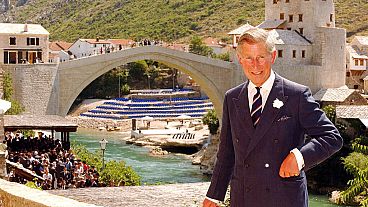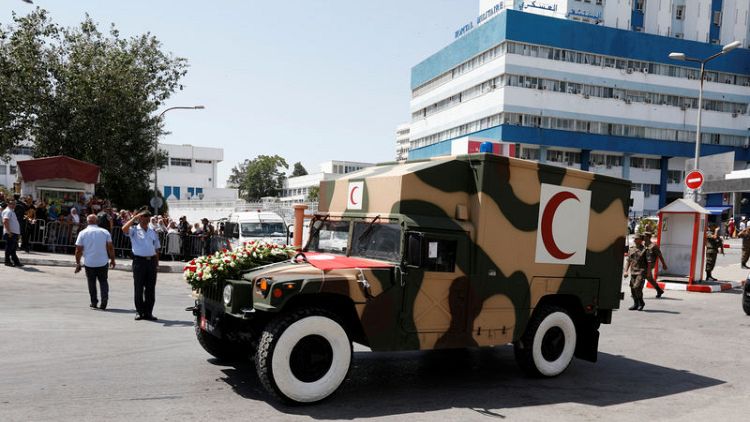By Tarek Amara
BAB ALIOUA, Tunisia (Reuters) - Tunisians mourning President Beji Caid Essebsi voiced pride on Friday at measures under way to choose his successor, saying his work guiding the country to democracy after a 2011 revolution helped make a peaceful handover of power possible.
Essebsi died aged 92 on Thursday, setting in motion a constitutional process toward selecting a new head of state.
Hundreds of women, men and children stood under a strong sun outside the military hospital where he died, and later watched as his coffin was taken to Carthage presidential palace under heavy security.
Many expressed respect for his role overseeing political reforms in the north African country after the overthrow of veteran autocrat Zine El-Abidine Ben Ali.
"Today we lost a father to all Tunisians," said a woman named Salma Hbibi.
"There are no tanks in the streets, no curfew, no statements from the army," she added. "Today we have gained a democratic state through a quiet and wonderful transition ..."
Tunisia has been hailed as the only democratic success of the Arab Spring uprisings, with a new constitution, free elections and a coalition government of moderate Islamist and secular parties in a region otherwise struggling with upheaval.
A state funeral is expected on Saturday, and international leaders including French President Emanuel Macron will attend.
"It was a sad day with the loss of our President Essebsi,” said Moncef Marzouki, a former president and one of Essebsi's most determined rivals.
"A STATE OF LAW"
"But I am also proud of this smooth transition. We are fortunate to be in an advanced path in democracy transition, we are moving to a state of law."
A few hours after the death of Essebsi, parliament speaker Mohamed Ennaceur was sworn in as interim president in line with the constitution. The electoral commission announced a presidential election for Sept. 15, two months earlier than previously scheduled. A parliamentary vote is set for Oct. 6.
The coming elections will be the third set of polls in which Tunisians have been able to vote freely since the revolution.
Essebsi rose to prominence after Ben Ali's overthrow, which was followed by revolts against authoritarian leaders across the Middle East, including in nearby Libya and Egypt.
Drafted in as premier after Ben Ali's fall, Essebsi in 2012 founded the secular Nidaa Tounes party, now part of the governing coalition, to counter-balance the resurgence of Islamists who were suppressed under Ben Ali. Two years later, Essebsi became Tunisia's first freely elected head of state.
Political progress has not been matched by economic advances. Unemployment stands at about 15%, up from 12% in 2010, due to weak growth and low investment.
Near Carthage palace, a young man named Nabil said: "We are deeply saddened, but I hope Tunisia will remain as consistent and cohesive as Essebsi wanted."
"Will miss you, Bajbouj," he said, using Essebsi's nickname.
(Reporting By Tarek Amara, Editing by William Maclean)












